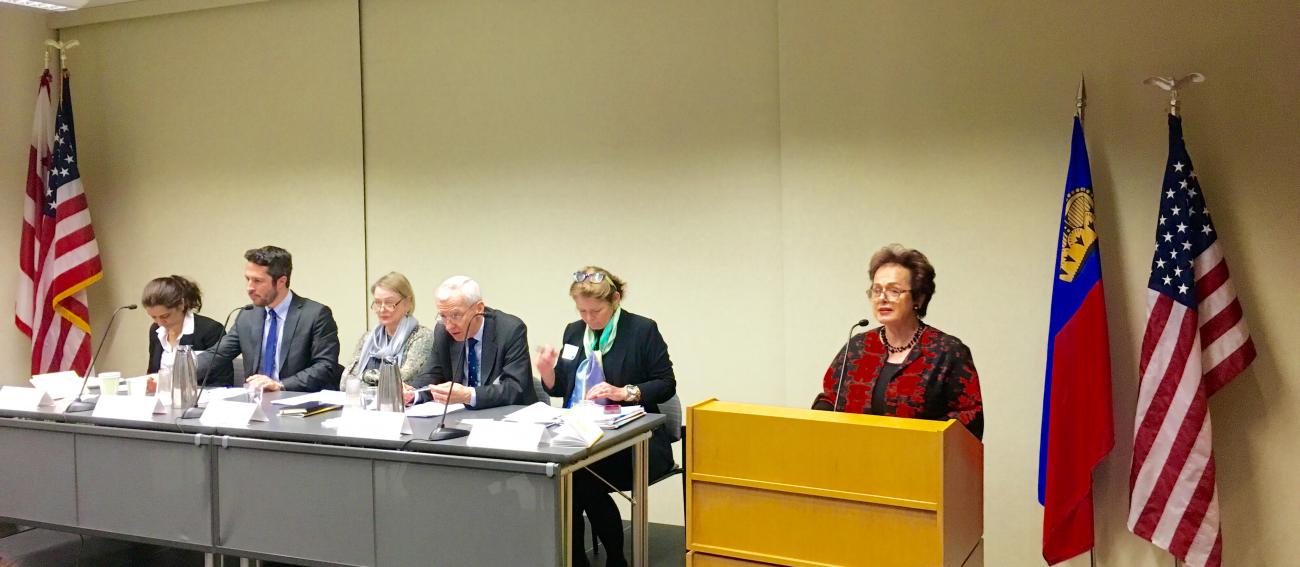The Embassy of Liechtenstein, in collaboration with Women in International Security (WIIS), hosted a roundtable discussion on “Terrorism, Women, and Violent Extremism” on March 21. The event took place at the Carnegie Endowment for International Peace in Washington, DC. This was the first of five events of a series sponsored by the Liechtenstein Government. Dr. Chantal de Jonge Oudraat, WIIS President, moderated the event. Panelists included Ms. Sanam Anderlini of the International Civil Society Action Network; Dr. Kathleen Kuehnast of the US Institute of Peace; Dr. Paul Pillar of Georgetown University; and Dr. Lorenzo Vidino of George Washington University.

Ambassador Claudia Fritsche made introductory remarks emphasizing that since the adoption of Security Council Resolution 1325, Liechtenstein has been pro-actively engaged in issues related to women, peace and security. Ambassador Fritsche was part of this development and witnessed it first-hand during her time as the Permanent Representative of Liechtenstein to the UN in the 1990s. Through Security Council Resolution 2242 improvements of the implementation of the women, peace and security agenda are initiated to be included in the counterterrorism agenda.
During the two-hour event the focus was on elaborating how terrorism and violent extremism have changed over time and which role gender dynamics play. All panelists stated that despite more frequent involvement of non-state actors, methods of the Cold War are still used. Several times, the discussion turned to young ISIS fighters (male and female) from Europe, who freely join the terrorist organization.
Ms. Sanam Anderlini, who has been involved in topics related to Resolution 1325 since the 1990s, stated that it’s nothing new for women to join terrorist groups. But she made a distinction between female suicide bombers and brainwashed children and women who sometimes don’t even realize that they are about to carry out a suicide bombing. She stated that Sunni groups were not the primary focus. She stressed that women on the ground had seen militarism and extremism long coming but their voices weren’t heard. She made the point that violence against women tends to be seen as a cultural or societal issue but violence against all groups is percieved as terrorism. She went on to emphasize that women need to be included at the discussion table and that a successful agenda should include what it stands for and not only state what it’s against.
When asked about relative actions to address violent extremism, Dr. Vidino said that one has to engage more on the micro/local level and that psychological support was essential. He also said that countries very often are not the right messengers but that they have the resources. “Deglamorizing” Jihad was also one of the tasks. On a question about funding, Dr. Kuehnast said the US government should also invest in education when it comes to a post-conflict development.
In the month of May WIIS will publish a more extended summary of the discussion.
